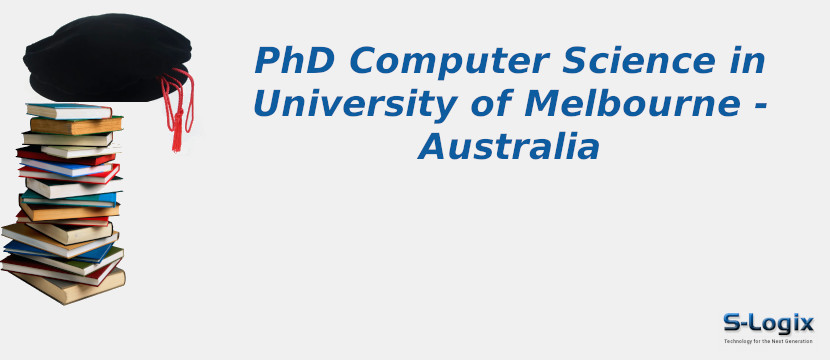The University of Melbourne is a public research institution in Melbourne, Australia, founded in 1853. The University of Melbourne is Australia-s second oldest university and one of Australia-s six sandstone universities.
The University of Melbourne is an associate of the Group of Eight, University 21, Washington University-s McDonnell International Scholars Academy, and the Association of Pacific Rim Universities.
The University of Melbourne encompasses ten separate academic units and is linked with numerous institutes and research centers, such as the Walter and Eliza Hall Institute of Medical Research, Florey Institute of Neuroscience and Mental Health, the Melbourne Institute of Applied Economic and Social Research, and the Grattan Institute.
The University of Melbourne comprises fifteen graduate schools: the Melbourne Business School, the Melbourne Law School, and the Melbourne Medical School. According to the Times Higher Education (THE) World University Ranking, the University of Melbourne ranked 33rd. As per QS World University Rankings, the University of Melbourne is 33rd.
The University of Melbourne attracts more than 54,000 students from over 150 countries. The University of Melbourne proffers 693 courses for undergraduate, graduate, and doctoral levels over its ten faculties, including Architecture, Building and Planning, Arts, Business and Economics, Education, Engineering, Fine Arts and Music, Law, Medicine, dentistry and Health Science, Science and Veterinary and Agricultural Sciences. Research at the University of Melbourne centered on discovering solutions for critical problems in the real world.
Address: Parkville VIC 3010, Australia
Phone: +61 3 9035 5511
Email: ask.unimelb.edu.au
Website: https://www.unimelb.edu.au/
• Bachelor of Computer Science
• Bachelor of Science (Computer Science)
• Bachelor of Science (Software Technology)
• Master of Computer Science
• Master of Science (Software Technology)
• Master of Data Science
• Doctor of Philosophy (Computer Science)
• Doctor of Philosophy (Software Technology)
• Doctor of Philosophy (Data Science)
The University of Melbourne is renowned for its world-class computer science research including cutting-edge research areas such as
• Artificial intelligence
• Computer science
• Human-Computer Interaction
• Information Systems
Artificial intelligence
• Deep learning,
• Data mining,
• Machine learning,
• Natural language processing,
• Agent-based systems
Computer science
• Programming languages,
• Algorithms,
• Distributed computing,
• Cybersecurity
• Cryptography
Human-Computer Interaction
• Augmented Reality for Human-Computer Interaction
• Multi-Modal Interaction
• Gesture Interaction in Human-Computer Interaction
• Social Robots
Information systems
• Cloud Computing Security
• Big Data Analytics
• Mobile Computing
• Cybersecurity
• Social Media and Information Systems
• Business Intelligence
The University of Melbourne-s computer science research labs and groups are producing groundbreaking innovations in the field.
• Scalable Systems Research Group
• Computer Architecture Laboratory
• Computer Vision and Robotics Group
• Data Intensive Systems Group
• Human-Computer Interaction Group
• Intelligent Robotics Group
• Knowledge Representation and Reasoning Group
• Machine Learning Group
• Natural Language Processing Group
• Networked Systems Group
• Programming Languages and Software Engineering Group
• Security and Privacy Group
• Vision and Graphics Group
• Academic Centre of Cyber Security Excellence (ACCSE)
• ARC ITTC in Optimisation Technologies, Integrated Methodologies, and Applications (OPTIMA)
• ARC Training Centre in Cognitive Computing for Medical Technologies
• Centre for Artificial Intelligence and Digital Ethics (CAIDE)
• Centre for Digital Transformation of Health
• Centre for Research Excellence in Digital Technology to Transform Chronic Disease Outcomes
• Melbourne Centre for Data Science (MCDS)
The University of Melbourne also furnishes a range of scholarships and awards to prospective Ph.D. students, including research scholarships, full-fee scholarships, and many more such as
• Melbourne International Research Scholarships (MIRS)
• Melbourne Research Scholarships (MRS)
• Melbourne International Fee Remission Scholarships (MIFRS)
• Chancellor-s Scholars Program
• Melbourne International Graduate Scholarship (MIGS)
• Melbourne International Fee Scholarship (MIFS)
• Melbourne International Postgraduate Program (MIPP)
• International Postgraduate Research Scholarship (IPRS)
• Melbourne Graduate Research Scholarship (MGRS)
• Melbourne Graduate Research Grant (MGRG)
• Melbourne International Masters Scholarship (MIMS)
• Melbourne International Masters Grant (MIMG)
• Melbourne International Fee Scholarship (MIFS)
• Melbourne International Masters Tuition Fee Scholarship (MIMTFS)
• Melbourne International Fee Remission Scholarship (MIFRS)
• Research Training Program (RTP)
• Faculty of Science Postgraduate Research Scholarships (FSPRS)
• Faculty of Science International Postgraduate Research Scholarships (FSIPRS)
• Faculty of Science International Postgraduate Research Grants
Computer science-funded projects at the University of Melbourne in Australia are
• Big Data Analytics for Smart Cities
• Cloud Computing for Education and Learning
• Information Retrieval for Digital Humanities
• Natural Language Processing for Social Media Analysis
• Machine Learning for Autonomous Systems
• Cyber Security and Privacy for the Internet of Things
• Human-Computer Interaction for User Experience Design
• Augmented Reality for Cultural Heritage
• Blockchain for Digital Transformation
• Robotics for Automation and Manufacturing
The University of Melbourne offers a Ph.D. in Computer Science in the School of Computing and Information Systems. The admission requirements for the Ph.D. program are:
• A 4-year bachelor-s degree in computer science, engineering, mathematics, physics, or other relevant fields with a cumulative GPA of at least 3.0
• A research proposal detailing the proposed research topic and methodology
• An academic reference letter from a university lecturer or mentor
• Proof of proficiency in the English language for Non-native English applicants
• A valid visa to study in Australia, if applicable
